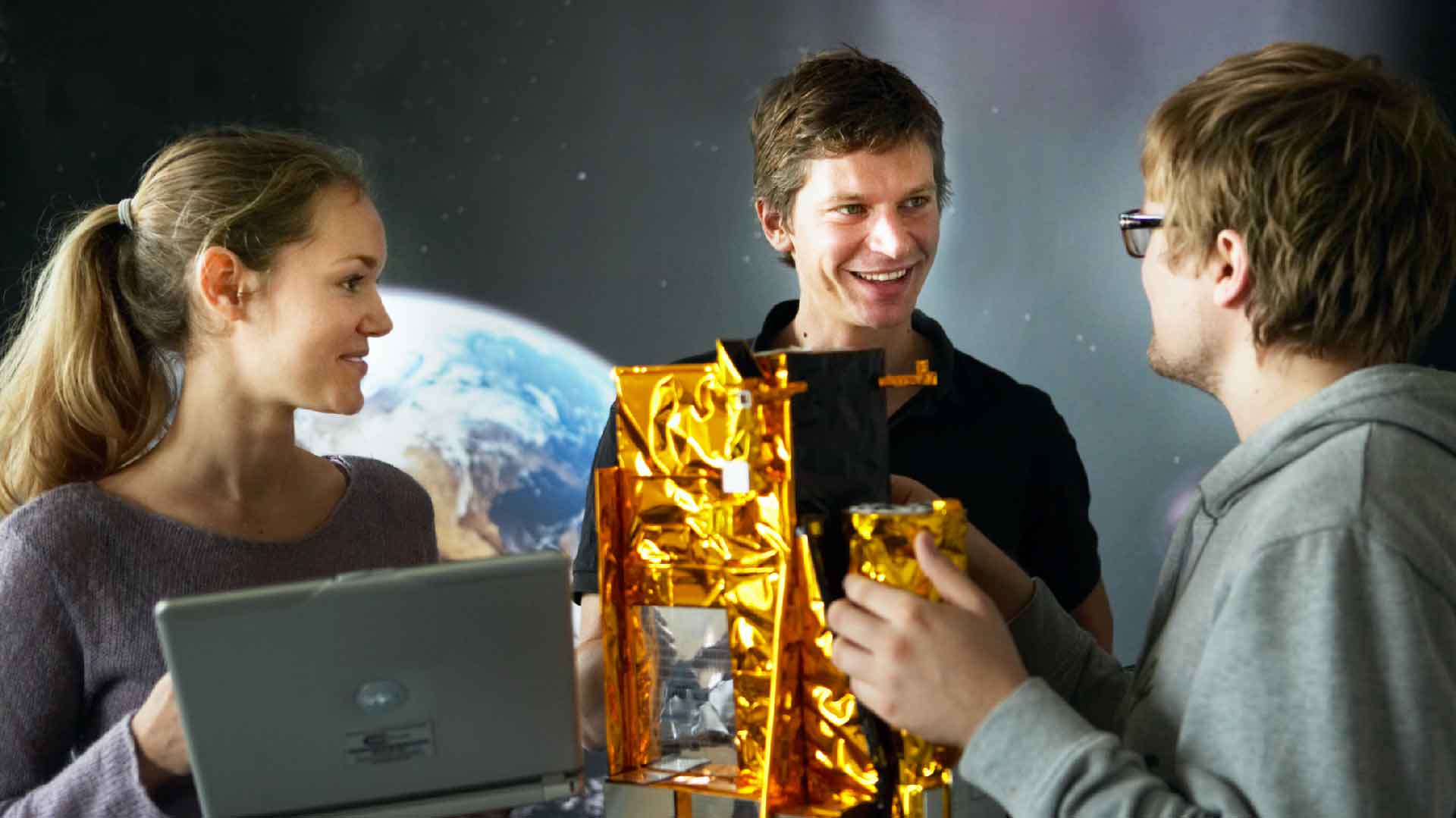Technologies for monitoring and mapping Earth and exploring the universe play a prominent role in our everyday lives. Without these technologies, we would not have GPS navigation in cars, reliable weather forecasts, global climate and environmental monitoring, or global telecommunication.
We are in great need of new and innovative methods and services for monitoring Earth's climate change and measuring the effects of the actions we take. The number of new applications and services for navigation and mapping will explode in the coming years—e.g. with the availability of more accurate data from navigation satellites, images from Earth observation satellites, improved (tele)communications, and increasingly sophisticated smartphones. Furthermore, the search for new energy resources—and more efficient use of existing resources—is also a task of world-wide importance.
As an Earth and Space Physics and Engineering graduate, you can make a substantial contribution to finding new, sustainable, and advanced technological solutions that contribute to solving the challenges society is facing.
The Earth and Space Physics and Engineering programme focuses on developing, designing, and applying innovative and advanced technological solutions for monitoring, mapping, modelling, and predicting large-scale physical structures and processes—i.e. on Earth, the solar system, and the universe.
NB! Please note that the programme is NOT concerned with aerospace engineering.
On the programme, you will learn to combine scientific knowledge with interdisciplinary technological competencies with a view to developing sustainable, advanced solutions—such as instrumentation, modelling, and data processing methods for use in, e.g., climate and environmental monitoring, the search for new resources, space exploration, or mapping and navigation on Earth.
The MSc Eng is a two-year graduate programme with a workload of 120 ECTS credit points.








